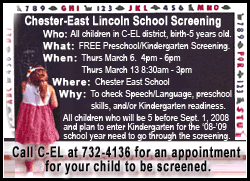 Even as a fourth-grader, Blockson, who is black, knew better. So he began collecting proof.
Even as a fourth-grader, Blockson, who is black, knew better. So he began collecting proof.
Today, the Charles L. Blockson Afro-American Collection at Temple University contains more than 30,000 historical items, some dating to the 16th century. It includes Paul Robeson's sheet music, African Bibles, rare letters and manuscripts, slave narratives, correspondence of Haitian revolutionaries and a first-edition book by W.E.B DuBois.
"It's really invaluable," curator Diane Turner said. "The materials are just so wonderful and unique."
The collection has grown so much since Temple acquired it 25 years ago that it moved into a larger space on campus this month.
Blockson, 74, is a historian, lecturer and author who began amassing his collection as a boy living in the Philadelphia suburb of Norristown. His quest began after he asked a substitute teacher about famous black people in history. She replied that there weren't any.

"I set out to prove her wrong," Blockson said.
Among his first purchases were the books "Up from Slavery" by Booker T. Washington, "God's Trombones" by James Weldon Johnson and a biography of George Washington Carver.
As he grew older, Blockson's hunts for books at the Salvation Army and Goodwill led to searches at more rarefied shops. He recalled a bookstore where he would hide volumes he couldn't afford in hopes they would still be there when he saved up the money.
At Penn State University, where his starring roles on the football and track teams earned him the nickname "Blockbuster," his friends did not understand his passion.
"People used to say, `What are you collecting those old books for?'" Blockson recalled.
After graduating in 1956, he turned down an offer to play football with the New York Giants and briefly entered the military. His continual collecting and research helped him become an expert on the Underground Railroad; he wrote several books, lectured around the world and met historical figures including Rosa Parks, Langston Hughes and Malcolm X.

Blockson worked as a teacher beginning in 1970. About 13 years later, he gave his collection to Temple and began serving as its curator.
The fact that it's at a mainstream university makes it unique among large black historical collections, said Michele Gates Moresi, curator of collections at the National Museum of African American History and Culture. Many prominent collections are at historically black colleges, such as Howard University's Moorland-Spingarn Research Center in Washington, D.C., she said.
"With the heart of the black community in North Philly, it was a perfect place for it," he said of his decision to house the collection at Temple.